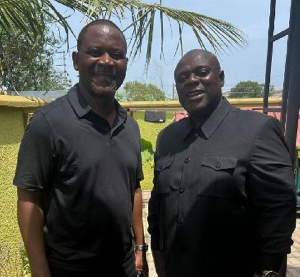General News of Tuesday, 24 May 2005
Source: Ghanaian Chronicle
Journalists Won't Cover Functions Not Held On Time
Journalists representing almost all the state and private media houses in the Eastern Region have resolved to walk out from programmes they are invited to cover but which are delayed.
They observed that often times, organizers of seminars, workshops, interactions and other programmes are not time conscious as they give the press time to start the programme only to be delayed sometimes for three hours.
The resolution was reached when 30 newsmen and journalists were delayed at a training of media personnel workshop on wildlife management organised by the Eastern Regional Wildfire Prevention and Control Committee at Koforidua on Wednesday, May 18.
At the Koforidua (SSNIT) conference hall,on account of having to wait for the arrival of the chairman and other dignitaries from Accra, instead of the stated 8:30 am, the function began at10:30am.
Mr. Thomas Brentuo, the Eastern Regional Director of Ghana News Agency (GNA) and chairman of Ghana Journalist Association (GJA) warned that the journalists in the region will no more entertain undue delays over the beginning of events especially when members of the press had other pressing assignments to cover.
On the failure of invited guests who fail to appear when billed to deliver keynote addresses, Mr. Brentuo advised organizers to always ensure that they get in touch with their invited guests to avoid last minute disappointments.As well, potential organizers were advised to beef up their addresses with facts and figures and not make them "empty," leaving the journalists with nothing to write.
The ultimate aim of the workshop was to equip media personnel with requisite knowledge on wildfire management to enable them reach out effectively to the population such that they could prevent and control wildfire in fire-prone forest areas.
The Eastern Region is endowed with natural forests, which provide immense benefits economically and environmentally. There are 35 forest reserves covering an area of 176, 940 hectares.
This presents 9% of the total land area of the region. The rest is made up of farms, secondary forest and other land uses, The Chronicle learnt.
However, the paper observed the unfortunate state the forest resource is currently undergoing due to over population, extensive farming and wildfire.
After the training workshop, the press stressed the urgent need for a change of attitude at the family, regional, national and global levels to abate all negative trends the forest and the environment are taking.
There were presentations by representatives of NADMO/EPA, Ghana Fire Service, Forest Service Division and Meteorological services on how to prevent and control wildfire.










